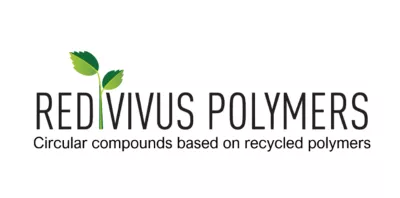General information
RDP Priority
- P6. Social inclusion and local development
RDP Focus Area
- 6B: Local development
RDP Measure
- M19: LEADER/CLLD
Beneficiary type
- Small-Micro Enterprise
Summary
Although a lot of plastic waste is recycled nowadays, there are some plastics which are more problematic to handle than others. This includes discarded fishing nets and other abrasive waste materials such as unfilled polyamide (nylon) and reinforced fiberglass.
Anders Munk had a vision to recycle nylon from old fishing nets so that this abundant resource could be given a new life and purpose. He used LEADER support to acquire plastic grinding machinery and develop a way to recycle these types of plastic. His business, called Redivivus, went on to supply the market with a high-quality recycled product called ‘re-grind’ for injection moulding in other industrial processes.
Results
- Redivivus has received 13 tonnes of difficult waste (aluminium and plastic/nylon) for processing that no one else in Denmark is able or willing to take on.
- Over 150 tons of ‘re-grind’ recycled plastic has been sold.
- Creation of two full-time jobs and two Corporate Social Responsibility (CSR) jobs.

Promoter
Redivivus Polymers
Funding
Total budget: 160 000 (EUR)
RDP support: 80 000 (EUR)
Private/own: 80 000 (EUR)
Resources
Documents
Good Practice Report - Regrind – recycling plastic waste
(PDF – 308.53 KB)
Context
CEO and founder of Redivivus, Anders Munk, had a vision to recycle nylon from old fishing nets so that this abundant resource could be given a new life and purpose. This, combined with a longing to start a new business venture, led to the creation of Redivivus, which is based in Havndal, Denmark.
Although a lot of plastic waste is recycled nowadays, there are some plastics which are more problematic to handle than others. This includes discarded fishing nets and other abrasive waste materials such as unfilled polyamide (nylon) and reinforced fiberglass, which tend to be too difficult and expensive to recycle. When the business was starting up, no suitable machinery existed that was sturdy enough to sustain the heavy wear and tear of processing and recycling these materials (i.e. shredding and grinding the matter into very fine pieces so that it becomes free-flowing and thereby re-useable).
With a background as an engineer and toolmaker in the plastic industry, Anders Munk spent years along with his business partners researching and testing to know what was needed to overcome the recycling challenge and how it might be possible to realise their business vision.
Objectives
The aim of the project was to find a way to recycle specific plastics, including discarded fishing nets made of unfilled polyamide (nylon) and reinforced fiberglass, and to supply the market with high-quality recycled plastic for industrial processing.
While other companies focus on recycling plastics with a relatively low strength, Redivivus aims to produce strong, ‘high-end’ engineering grade recycled plastics.
Activities
The project focused on developing machinery that can grind and shred high strength plastics simultaneously into coarse as well as fine material. For this process, the machinery needs to be sufficiently powerful to produce high quality ‘re-grind’ - a product for further industrial use - which is the end goal of the project. The project featured the following activities:
- Developing the necessary equipment and machinery that can handle the recycling of more difficult types of plastics.
- Commissioning and investing in the construction of extra strong machinery that can withstand the heavy wear and tear that occurs when processing abrasive materials and that can grind the plastic waste material coarsely and finely at the same time.
- Starting the recycling process and producing ‘re-grind’, a final product that can be used as is, but can also be turned into pellets depending on clients’ needs. Both goods can be used for several new products.
Main results
- Fully operational business with newly developed machinery in place.
- Redivivus has received 13 tonnes of difficult waste (aluminium and plastic/nylon) for processing that no one else in Denmark is able or willing to take on.
- Over 150 tonnes of re-grind recycled plastic has been sold.
- Creation of two full-time jobs and two Corporate Social Responsibility (CSR) jobs for people with disabilities, or hard to find or to keep a job.
Key lessons
- While the company has succeeded in recycling difficult materials that other companies are unable to handle in Denmark, the project has not yet achieved the recycling of fishing nets. The developed machinery can still not grind these materials into sufficiently fine pieces so that they become free-flowing, which is required for the process to fully work and produce a useable end-product for further industrial use. Redivivus continues to work on developing the process of recycling fishing nets.
- COVID-19 was the biggest hurdle that was encountered. This made the development of the machinery and the sourcing of relevant components more difficult. However, this experience emphasised the importance of recycling in context of overcoming the shortage of any kind of materials and components around the world.
Anders Munk

